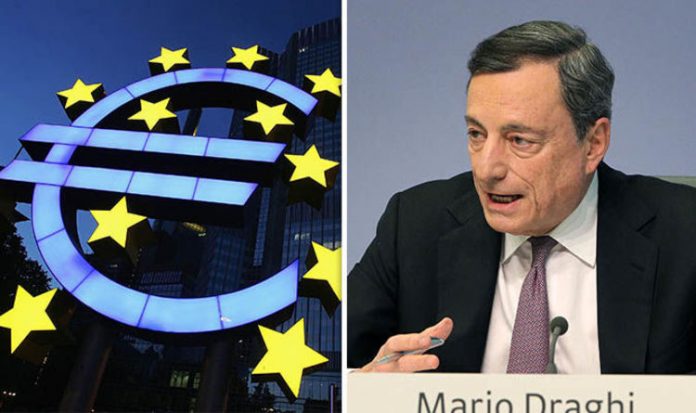[ad_1]
The area’s gross domestic product (GDP) has increased of just 0.3 percent between the first and second quarter of 2018, according to data released by Eurostat, the eurozone’s statistics agency.
This growth is not only weaker than forecasted but represents the lowest figure since the second quarter of 2016.
This slowdown comes weeks after the ECB announced it would end the helping measures it took following the 2008 financial crisis that brought to their knees members of the southern part of the continent.
In 2015 the ECB started buying assets from commercial banks in a bid to support economic growth across the euro area and help keep inflation levels below 2 percent.
In June the central bank said it would cut the bonds it bus each months under the crisis-support programme from £26.70bn (€30bn) to £13.35bn (€15bn), before calling time on the programme at the end of the year.
The news ignited concerns the central bank was being too hasty in its desire to remove the crisis-era supports, as decided following a record growth started in the fourth quarter of 2016 and that lasted through all 2017.
The GDP figure is a flash estimate, and Eurostat didn’t provide any information about the composition and causes of the slow growth.
But it is likely weaker global trades due to, among other factors, higher oil prices and the trade war between the US, China and the EU contributed to the fall.
The 2017 recovery, which started with a 0.8 percent rise registered at the end of 2016, was fuelled by strong exports.
Growth from the end of 2018 to the end of the first quarter was 0.4 per cent, compared with 0.7 per cent for the previous quarter.
Christoph Weil, economist at Commerzbank, said the latest GDP figures “confirmed that the economy in the eurozone lost considerable momentum in the first half of the year”.
Mario Draghi, European Central Bank president, confirmed he didn’t expect trade to provide as much support to the economy as it did last year.
But he believes the better pay deals struck for workers in the eurozone are a sign that growth could remain at respectable levels.
Eurostat figures show unemployment in June was at 8.3 percent, its lowest level since December 2008.
Economists believe these disappointing figures are not enough to reverse the decision of halting the crisis-era supports.
Jennifer McKeown, chief European economist at research firm Capital Economics, said: “In all, we doubt that the ECB will be deterred from its course of gradual policy normalisation yet.
“But interest rates seem unlikely to rise until September 2019 at the earliest and the bank will keep open the option of extending its asset purchases into next year should the slowdown continue.”
[ad_2]







